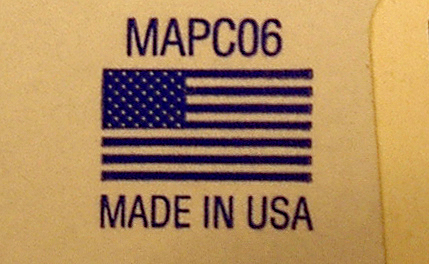A study done by researchers at the University of Chicago found that a “Made in USA” can motivate people to buy products. However, most consumers don’t know that some of these companies use this label as a marketing ploy.
Companies use labels to drive up sales
A requirement of the U.S Federal Trade Commission (FTC) is that products imported into the country must have a label showing where they are from. However, products from the U.S do not have to meet this requirement. Businesses use the label solely for the customers.
According to the study, Americans are willing to spend more on products with the label. However, taking them off drives the prices down.
According to researchers Anita Rao and Xinyao Kong, to benefit from the increased demand for U.S-made products, some businesses have started to become deceptive. Rather than manufacture goods in the country, they instead use the label to drive up orders for their goods.
For a product to meet the ‘Made in USA’ criteria, the FTC requires it to be entirely or primarily made in the country. It should also have very minimal or no foreign content. In the last ten year, the company has looked into more than 150 cases about a business dishonestly using the label. About 1 in 4 did not meet the FTC standards.
Americans show a preference for products made in the country
The researchers zeroed in on four brands, which were Loctite Glue, Tramontina Cookware, Gorilla Glue and Gorilla tape. After the removal of the label, sales went down for three of the brands. Gorilla Glue had a 1.9% weekly decline in sales, Loctite Glue had a 6.1% decline, and Tramontina Cookware had a 19.5% decline. Gorilla Tape, on the other hand, went through a decrease in trend.
The researchers took the study to eBay to determine if Americans cared if a product was made in the country. They held about 912 auctions for screen protectors for handheld devices, which were already in high demand.
Researchers claimed that some of the products were American-made. Products labelled as ‘Made in the USA’ made sales that were 28% higher than those that were not. This increase is enough to make companies engage in deceptive tactics.


